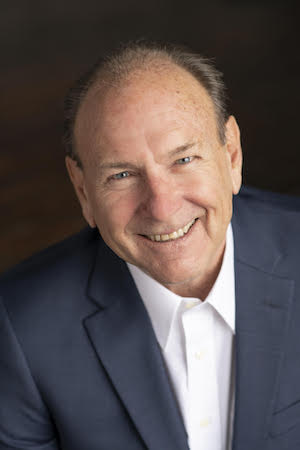Schuetz: Where Is Matthew Holt And Who Is Watching The Store?
The integrity of IC360 is in question in the wake of its CEO’s silent departure
8 min

There’s something happening here
But what it is ain’t exactly clear
— Lyrics by Stephen Stills, song by Buffalo Springfield
There is nothing more critical to the sustainability of sports betting than sports integrity. Nothing.
Numerous incidents have attracted increased concern over the role of the integrity of sports betting in the U.S. since the repeal of PASPA in 2018. See here, here, here, here, here, and here.

For this reason, last year, I tracked down Matthew Holt, then head of U.S. Integrity. I wanted to visit with him to get a feel for who he was. While I had met Matt, I had never really visited with him.
I did know his pedigree. Matt had cut his teeth in betting with Cantor Gaming and its variants. I knew Matt’s boss, Lee Amaitis, when he ran Cantor Gaming and considered him a friend. I would suggest, however, that a person could find a softer spot in a brickyard than Lee.
Lee was tough; before he entered the betting space, he had taken a leading role in rebuilding Cantor Fitzgerald, the financial services firm, after 658 of the firm’s 960 employees were killed in the 9/11 terrorist attacks on the World Trade Center.
One thing that could not be challenged was that Lee Amaitis was extraordinarily smart. It was also evident that bullshit did not make the cut in his shop. To survive there, Matt needed to understand betting, and he needed to understand it well.
I wrote a story about Matt in June of last year. The title was: “Matthew Holt Has An Impossible Job. Good Thing He’s Up For It.” In that article, I had the following observation:
Matt is a very unusual character in the modern betting scene in that he really knows betting. He cut his teeth working in a most interesting and unusual betting environment, Cantor Gaming. Cantor was not for the faint of heart or the slow learners. He left Cantor in 2018 and founded U.S. Integrity. It was a great move for him and a great get for the sports betting industry.
On Oct. 4, 2023, I learned that Matt’s firm was merging with Odds On Compliance. I also noted that Matt would be the CEO of the new entity. This merger was completed on April 23 of this year, and the new entity was called IC360.
I was then somewhat surprised when, two weeks ago, on Oct. 22, journalist Mike Seely reported that Matt had left IC360. Most importantly, Seely reported that this had occurred over the summer.
An eerily quiet departure
What surprised me about Matt being gone was that it was not announced that Matt was gone when Matt was gone. The reality was that one of the best-known practitioners in the world with respect to sports integrity was no longer with a firm that represented that it was a leader in sports integrity. That seemed very disrespectful to its many markets.
To me, this represented a tremendous breach of duty in the modern betting scene. His departure from the firm should have been announced the day it happened.
Too many people had joined U.S. Integrity because of Matt, and they needed to know he was not there.
When one digs into the IC360 website, the folks there offer an impressive array of talents. They have people with backgrounds in technology, law, finance, sales, regulation, compliance, and gambling harm. What stands out is the noteworthy absence of people who have worked in a real betting environment, and I mean the betting part of a betting business. That is like a consulting company promising to make a person a great lover, then realizing that none of them had ever been on a date.
In betting, Matt has been in the belly of the beast, where numbers are exchanged for money, and I believe that experience is critical in understanding betting.
I am sure some great people have spent time learning about heart surgery, but I do not want them messing with my heart until they have acquired some real-time actually operating on hearts — and the people survived. It is that proof-of-the-pudding thing.
Silence speaks volumes
When I learned that Matt was gone, I contacted him. I explained that the first reason for my call was to ensure he was OK. The second reason was that I wanted to catch any juicy gossip.
He thanked me for my concern and said he could not talk about his departure from the firm.
I have been awash in corporate environments long enough to know that this meant there had been a divorce, things were exchanged, and one of the things exchanged was for Matt to keep his mouth shut. At least, that is my best guess.
One of the issues I see occurring in the betting space today is the Jimmy the Greek Syndrome. This is a situation where an individual can make more money with his mouth than by actually doing the work. It really used to frustrate me listening to the Greek blather on CBS’ NFL Today about this and that, for no matter what he said, there were no consequences (until the end, of course, when his bigotry caught up with him).
On CBS, when the Greek made a statement about the outcome of a game, that was that. In a real betting shop, and not a pretend betting shop on TV, when a statement is made about a game, someone may follow that by handing over $25,000 and saying: “It’s a bet.”
There is a big difference between those two scenarios. Talk is cheap, and I will save my respect for people who have actually booked real action day after day after day.
That is why I am troubled by the absence of notice regarding Matt leaving IC360. Matt knew betting, and silly me, that is critical in betting integrity, and I cannot find that particular subject matter expertise in the IC360 biographies.
The regulator learning curve
Firms like IC360 are very significant because regulators know less about betting than they let on, and I get that. First, betting is a complicated subject; even Billy Walters will suggest that he is still learning. One does not get great without that attitude. One must remember that it is hard for regulators to understand something they have never done.
Moreover, it is hard for them to learn, for if they ask a bunch of questions, it becomes potentially embarrassing because it gives the impression that they do not understand what they are regulating.
Regulators like to give the impression that they completely understand everything they regulate. This leads them to take the natural reaction of trying to hide their weak spots. They will learn some safe statements, repeat them, and pray that no one asks them the implications of arbing on liquidity or translating the difference in the presentation of odds between entities in the U.K. and the U.S.
I have often wondered what would happen during one of the multitudes of conferences where the same folks pay to sit around at panels and stroke each other if real betting questions were fired at the regulators. My sense is they would freeze.
If one looks at IC360’s mission statement, one will notice that it commits to transparency. I believe the group neglected this commitment by failing to announce Matt’s departure. Once again, the lack of action defeats the intent of the words, which is another way of saying that words on a mission statement are often cheap because they are not honored.
Expertise is essential to integrity
Many of the firms in the modern betting scene seem to dream of a technologically induced nirvana, where profit maximization can be accomplished by turning everything over to technology and letting the algorithms, AI, magic beans, and the like run the show. That day may be coming, but it is not here, and people who possess Matt Holt’s skills are essential to maintaining a semblance of order in the sports integrity space.
The most critical enforcement agencies in sports integrity operate at the federal level. Given that gaming is regulated state-by-state, and the state’s authority stops at the border, the states are limited in what they can do regarding investigations. Integrity challenges in sports span state lines, making the feds a critical component in the integrity equation.
I know this for an absolute fact: The feds want to talk to a human when something seems wrong, and they want to speak to a human with Matt Holt-type skills and experience. They do not want to visit with someone worried about a misbehaving variance.
During my time with the Stardust, we played a crucial role in sports integrity because of our size and importance in the betting world. The feds cared about integrity, always listened to our opinions, and would always thank us for whatever information we could provide. They would also visit our shop, knowing we knew the business. And I also know, from real life, that this attitude of the feds has not changed. If the feds lose faith in the integrity monitors, it is a massive loss to betting integrity.
The bigger picture
Simple systems do not always work. I approved a massive wager on a small college basketball event during my days in the casino business. I did this because it came from a VIP who had lost a ton of money on a dice game, and he wanted to make a big laydown on his Podunk college basketball team, a bet many multiples beyond our normal limits. When I took the bet, I would have more money on one side of a game than the entire rest of the market had on the game.
That was all cool with me because if he lost the bet, I had his money, and if he won the bet, he would spend the next 12 hours giving it back in the dice pit. While this was a huge variance in the action on the team, I would not even move my number, for there was no reason to move the number. I certainly was not going to be able to balance anything. And I certainly would not want it being reported because many outside my shop might misinterpret it for something it was not. Bettors and bookies understand this, but algorithms do not.
It takes a village to work toward sound sports integrity, and one critical part of that village must be a person with deep credentials in the betting space.
I believe every member of the IC360 team would be alarmed if a professional football team tried to keep information out of the market concerning that a key player had left the team and was no longer involved in an upcoming game. This would be a breach of integrity. This is also true of IC360 losing one of its key players, like Matt Holt, and not announcing it to all concerned. I believe this was a breach of integrity.
I have no idea why Matt left IC360. It does not matter for this discussion. What matters is the fact that he was gone should not have been withheld from the betting public.
And call me old school, but integrity is an essential quality for an integrity service to possess. Now, they have to earn it back.
—
Richard Schuetz entered the gaming industry working nights as a blackjack and dice dealer while attending college and has since served in many capacities within the industry, including operations, finance, and marketing. He has held senior executive positions up to and including CEO in jurisdictions across the United States, including the gaming markets of Las Vegas, Atlantic City, Reno/Tahoe, Laughlin, Minnesota, Mississippi, and Louisiana. In addition, he has consulted and taught around the globe and served as a member of the California Gambling Control Commission and executive director of the Bermuda Casino Gaming Commission. He also publishes extensively on gaming, gaming regulation, diversity, and gaming history. Schuetz is the CEO American Bettors’ Voice, a non-profit organization dedicated to giving sports bettors a seat at the table.






